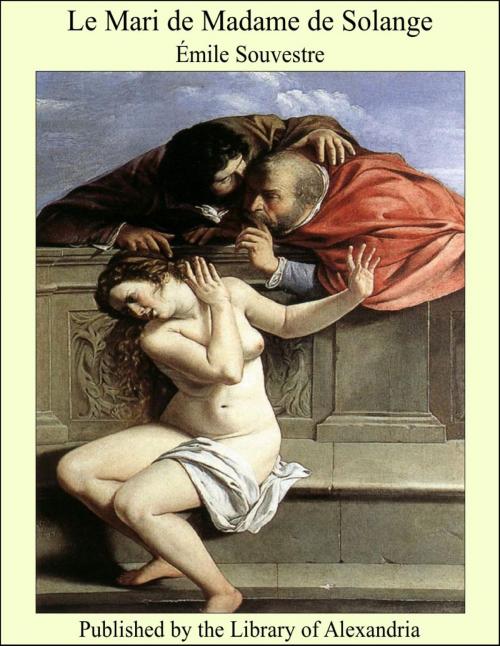Le Mari de Madame de Solange
Nonfiction, Religion & Spirituality, New Age, History, Fiction & Literature| Author: | Émile Souvestre | ISBN: | 9781613109748 |
| Publisher: | Library of Alexandria | Publication: | March 8, 2015 |
| Imprint: | Language: | French |
| Author: | Émile Souvestre |
| ISBN: | 9781613109748 |
| Publisher: | Library of Alexandria |
| Publication: | March 8, 2015 |
| Imprint: | |
| Language: | French |
BIOGRAPHICAL SKETCH. EMILE SOUVESTRE was born at Morlaix in Brittany, April 15, 1806. His father was a civil engineer, and he intended following the same profession. After his father's death he changed his mind and began to study law, but being ambitious to shine as a writer he soon abandoned the law also. His first literary work was a drama entitled "The Siege of Missolonghi," but this, like many Other works of its class, was never produced on the stage. The misfortunes of his family soon compelled him to devote himself to making money, and in 1828 he became a book-keeper in Nantes. He did not, however, entirely renounce literature, but published numerous articles in various periodicals, the most noted of which was a series entitled "Les Derniers Bretons," which appeared in "La Revue des Deux Mondes." These established his reputation as a writer of taste, and during the next twenty years he wrote a large number of stories and tales, most of which were originally published in newspapers and reviews. His constant aim was not only to please the reading public, but also to inculcate the principles of sound morality. His next venture was the co-principalship of a private school at Nantes, but he soon resigned his position and became the editor of a paper at Brest. This he was soon compelled to give up for political reasons, and he then accepted a professorship of rhetoric in the same place, and afterwards in Mühlhausen. The professor's chair, however, does not seem to have been congenial to his tastes, for in 1836 he removed to Paris, determined to devote himself exclusively to literature. He took up his abode in the fourth story of a house in a retired part of the city, and of his life there he gives us charming glimpses in his "Philosophe sous les Toits." His thoroughly human and sympathetic nature made him a favorite with all who knew him, especially with the laboring classes, with whom he loved to associate. It is to this circumstance that we owe "Les Confessions d'un Ouvrier
BIOGRAPHICAL SKETCH. EMILE SOUVESTRE was born at Morlaix in Brittany, April 15, 1806. His father was a civil engineer, and he intended following the same profession. After his father's death he changed his mind and began to study law, but being ambitious to shine as a writer he soon abandoned the law also. His first literary work was a drama entitled "The Siege of Missolonghi," but this, like many Other works of its class, was never produced on the stage. The misfortunes of his family soon compelled him to devote himself to making money, and in 1828 he became a book-keeper in Nantes. He did not, however, entirely renounce literature, but published numerous articles in various periodicals, the most noted of which was a series entitled "Les Derniers Bretons," which appeared in "La Revue des Deux Mondes." These established his reputation as a writer of taste, and during the next twenty years he wrote a large number of stories and tales, most of which were originally published in newspapers and reviews. His constant aim was not only to please the reading public, but also to inculcate the principles of sound morality. His next venture was the co-principalship of a private school at Nantes, but he soon resigned his position and became the editor of a paper at Brest. This he was soon compelled to give up for political reasons, and he then accepted a professorship of rhetoric in the same place, and afterwards in Mühlhausen. The professor's chair, however, does not seem to have been congenial to his tastes, for in 1836 he removed to Paris, determined to devote himself exclusively to literature. He took up his abode in the fourth story of a house in a retired part of the city, and of his life there he gives us charming glimpses in his "Philosophe sous les Toits." His thoroughly human and sympathetic nature made him a favorite with all who knew him, especially with the laboring classes, with whom he loved to associate. It is to this circumstance that we owe "Les Confessions d'un Ouvrier















